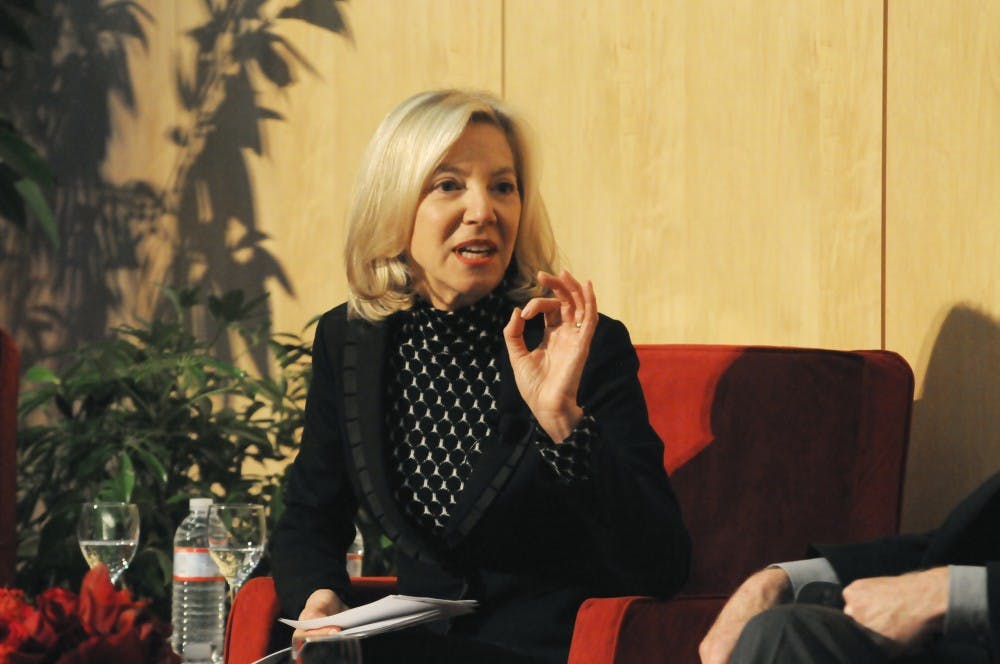
From nooses to swastikas and repulsive chants, college campuses in the United States have had no shortage of racial tensions. But where is the line drawn between racism and free speech?
In an interview with The Daily Pennsylvanian, President Amy Gutmann, who is trained in political philosophy and political science, discussed the balance between fighting racism while protecting free speech. Gutmann has written extensively about deliberative democracies and has been a vocal supporter of having all beliefs — even the most unpopular ones — openly expressed.
Even for an expert like Gutmann, it’s a tricky issue.
“There is no simple way of drawing a line. It’s not that you can draw a line and something is on one side or the other, and that’s all you have to do.” Gutmann told the DP. “I begin with the time-tested belief that free speech is the lifeblood of a thriving democratic society, and it is also the lifeblood of universities and institutions of higher education like Penn.”
“We can only succeed in addressing complex and controversial issues if we commit ourselves as a community to respecting diverse perspectives or beliefs of others,” she added.
Gutmann believes that freedom of speech is most vulnerable when it involves unpopular speech.
“The challenge of free speech is when there is speech you really don’t like and we have to live up to that challenge,” Gutmann said. “We have to stand by free speech when it’s offensive speech, as well as when it’s speech we like.”
Gutmann conceded, though, that there are limitations to free speech that must be considered, including threatening others or falsely shouting fire in a crowded theater. She added that the context in which the statements are taken must be examined carefully.
Regardless of whether certain speech is protected by the first amendment, Gutmann says that everyone has a responsibility to respond to speech they do not like.
“The right to free speech is often defended without the understanding that it comes along with the responsibility, when we can and as long as we’re protected, to speak our minds in response to offensive, sometimes disgusting and demeaning speech,” she said.
When a video surfaced earlier this month of members of the University of Oklahoma’s Sigma Alpha Epsilon chapter shouting racist chants, the school’s president, David L. Boren, upheld this responsibility and joined hundreds of OU students in a public protest. However, Boren, a former governor and senator, also took swift action to discipline the students involved. He quickly severed the university’s ties with the SAE chapter and expelled two of the fraternity's members.
“To those who have misused their free speech in such a reprehensible way, I have a message for you,” Boren wrote in a letter to all students, faculty and staff at OU. “You are disgraceful. You have violated all that we stand for. You should not have the privilege of calling yourselves ‘Sooners’.”
While some applauded Boren for taking a staking a stand against racism on campus, others criticized him for violating the First Amendment rights of the SAE students and punishing them for what they said in a private setting.
When asked if she agreed with Boren’s decision to punish the students for their chants, Gutmann declined to take a side.
“There are facts of that matter that I am not privy to and I wouldn’t want to speak on a particular action like that,“ she said. “As I said, it’s very context specific.”
The Daily Pennsylvanian is an independent, student-run newspaper. Please consider making a donation to support the coverage that shapes the University. Your generosity ensures a future of strong journalism at Penn.
DonatePlease note All comments are eligible for publication in The Daily Pennsylvanian.








